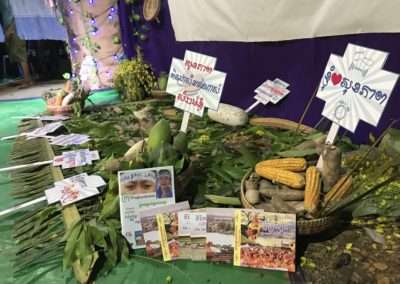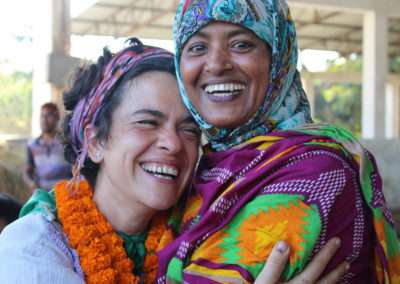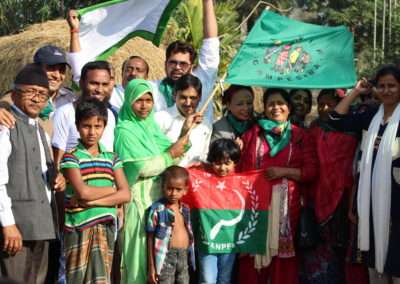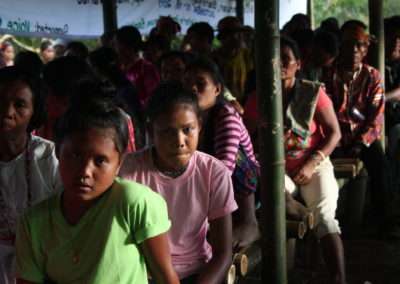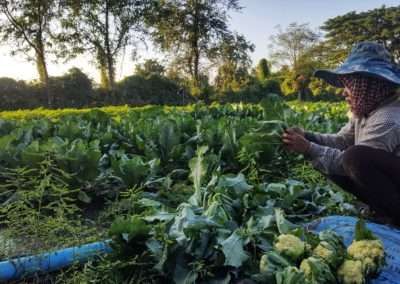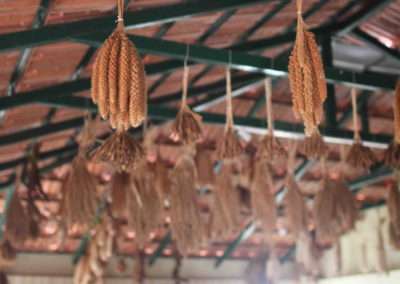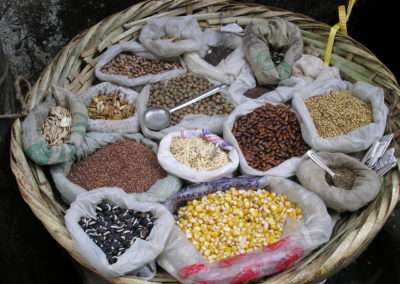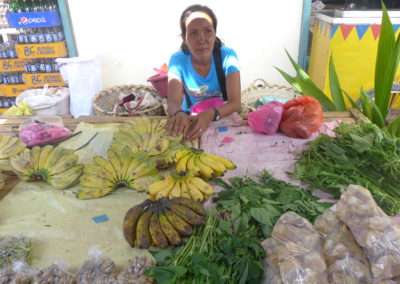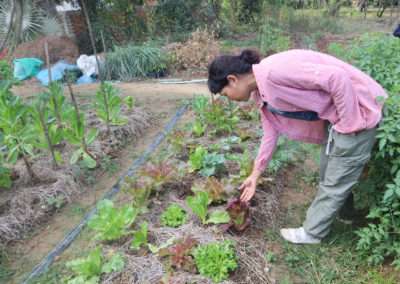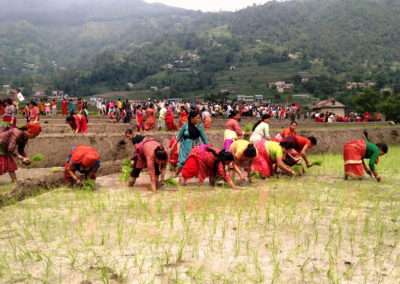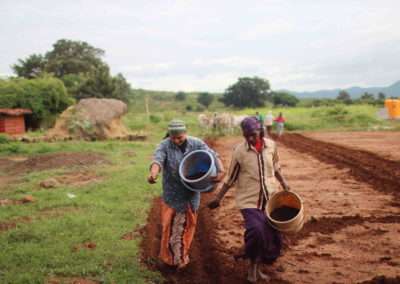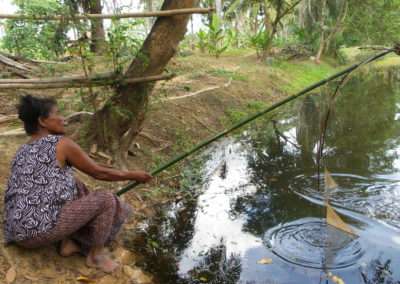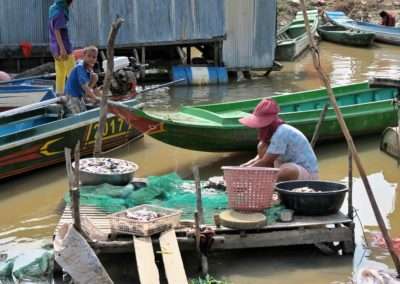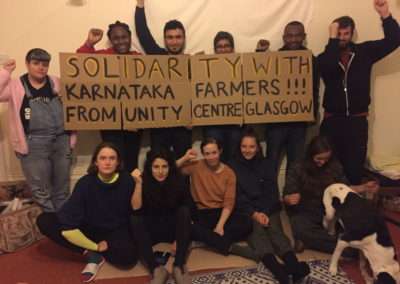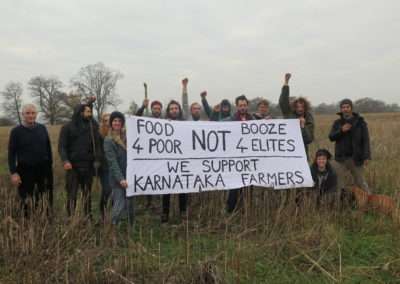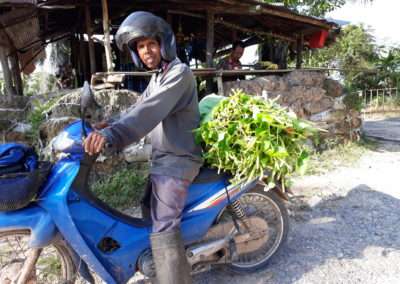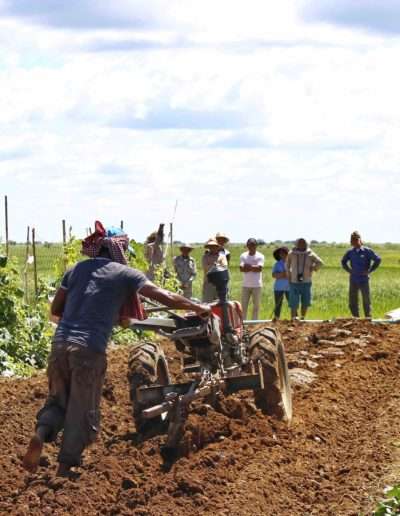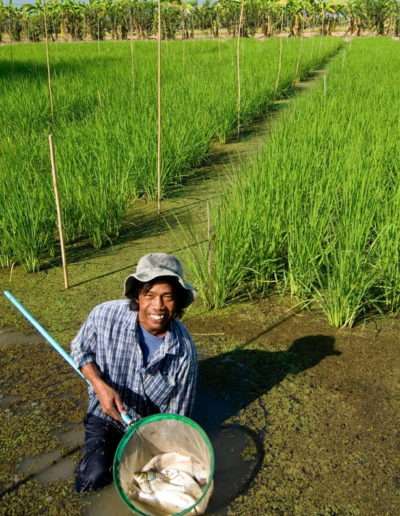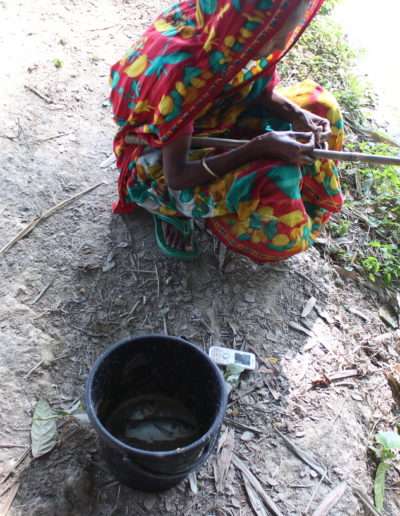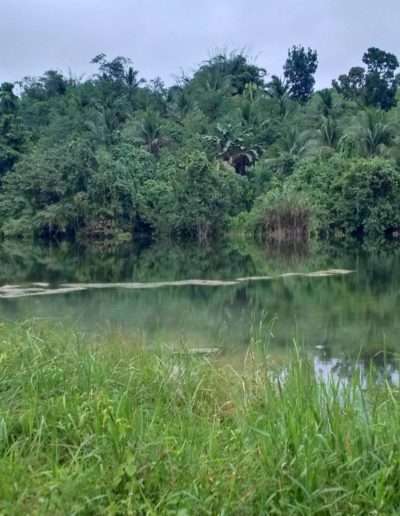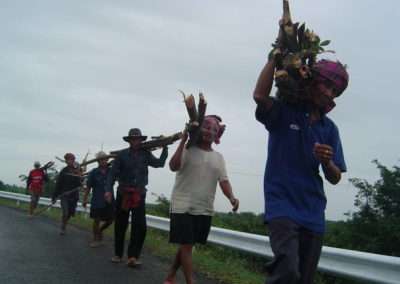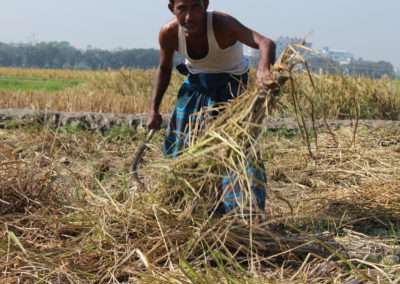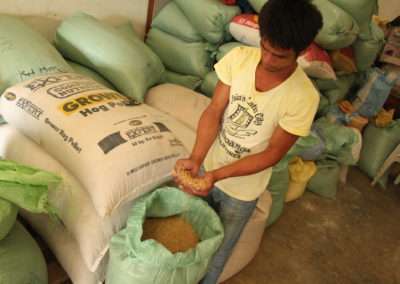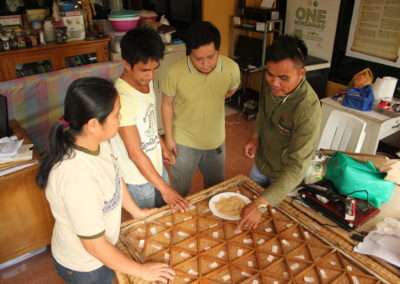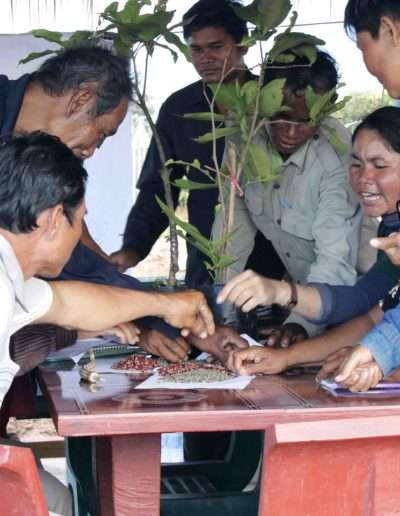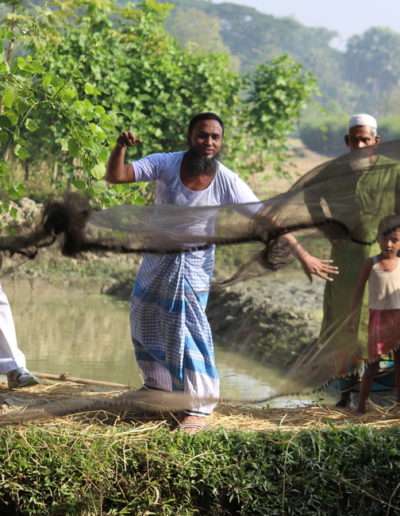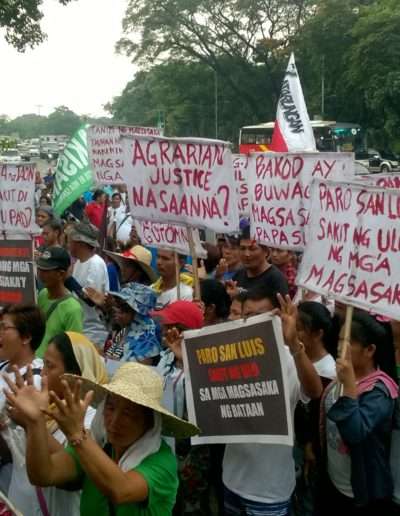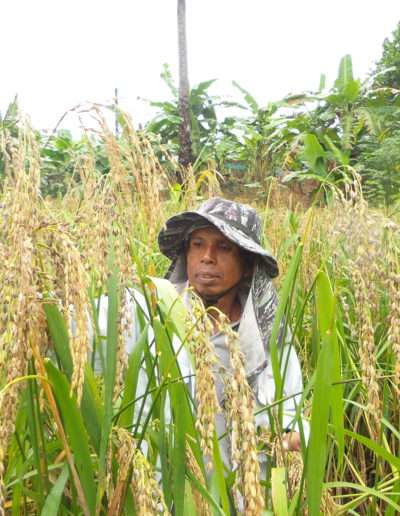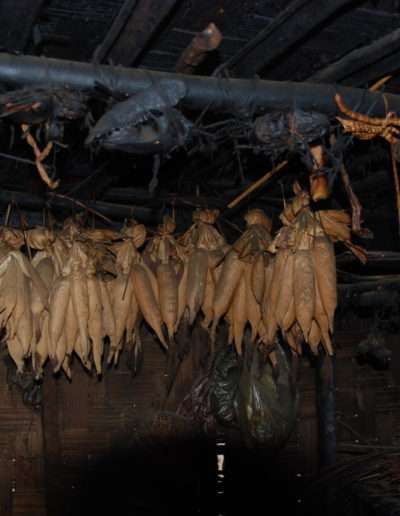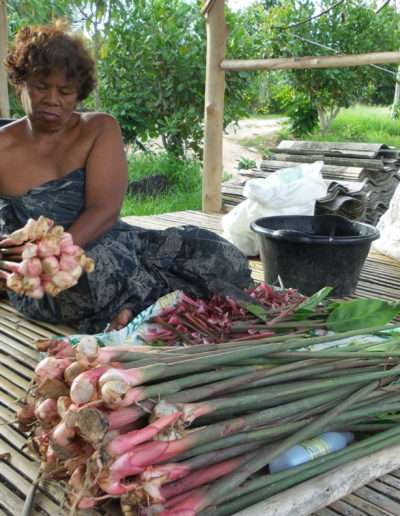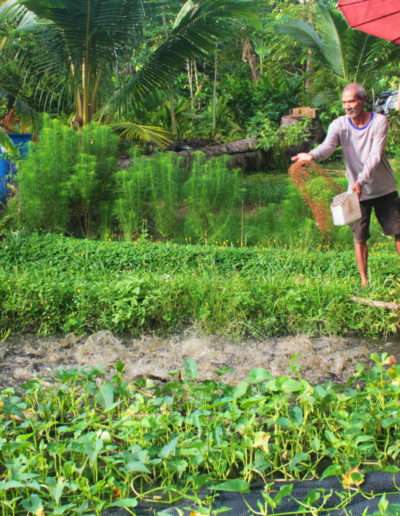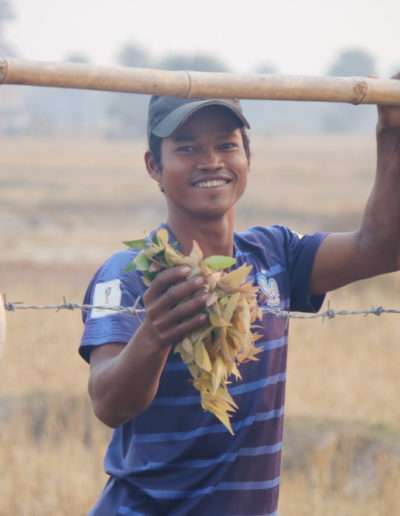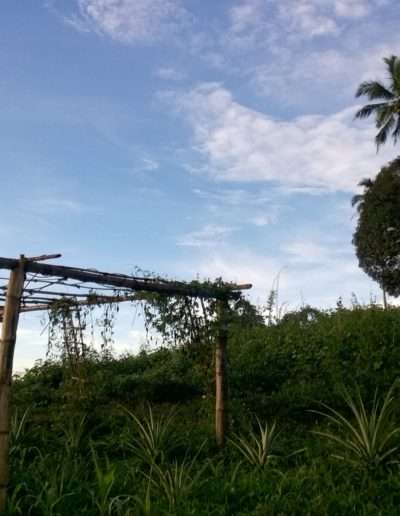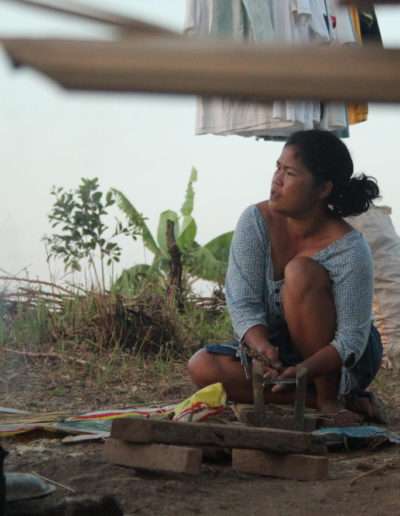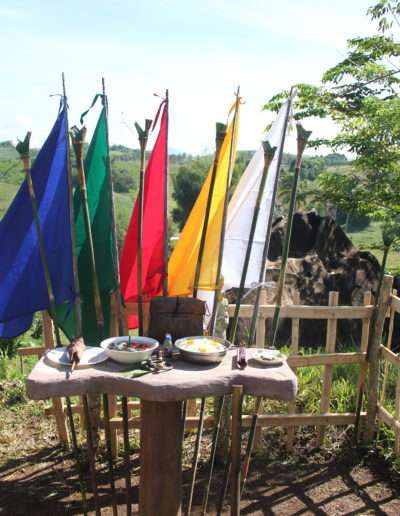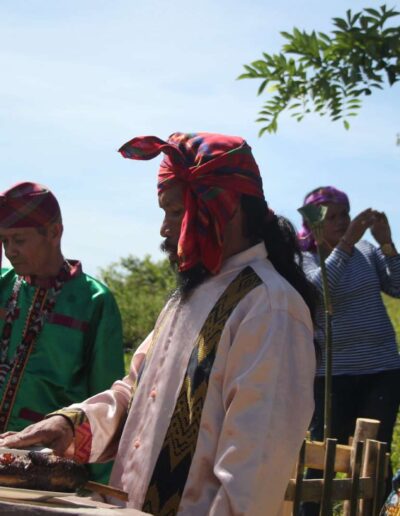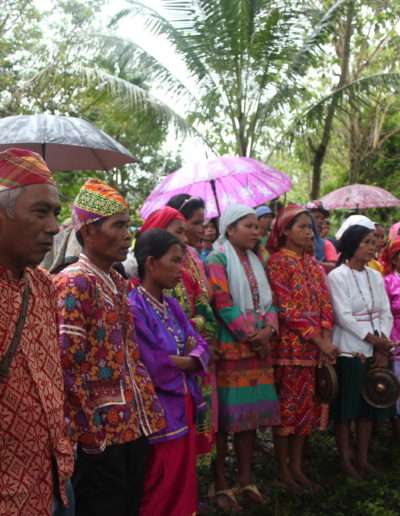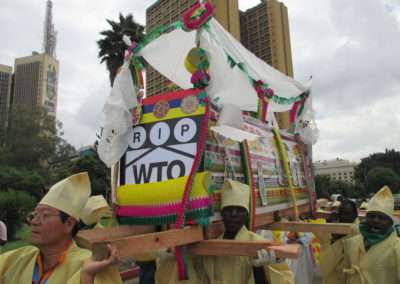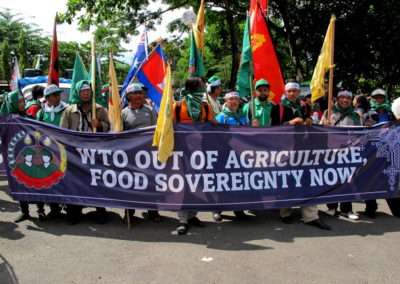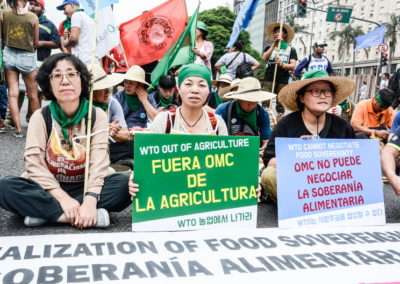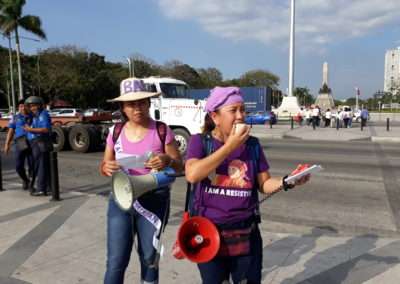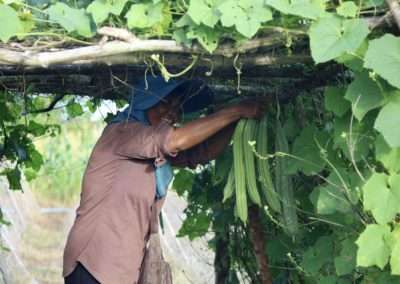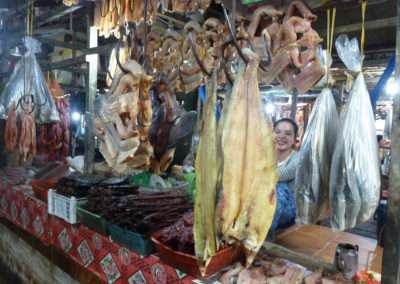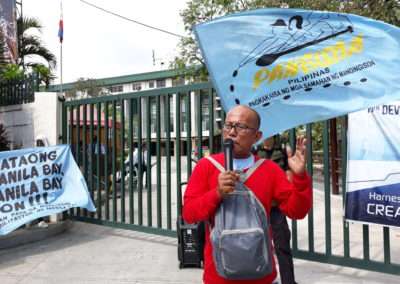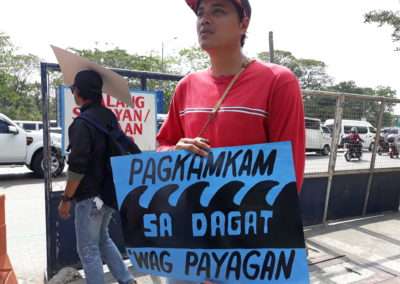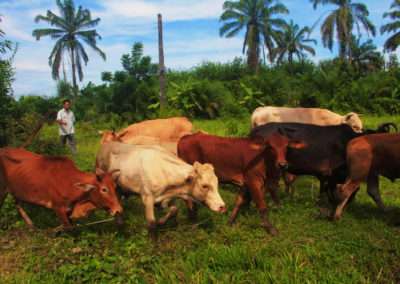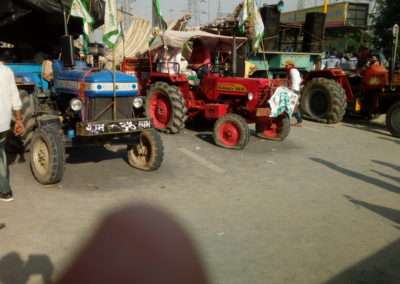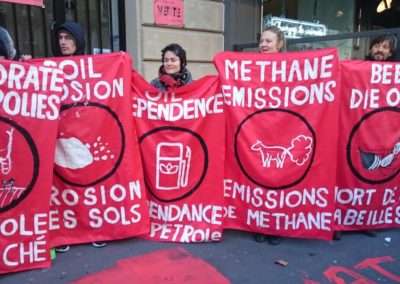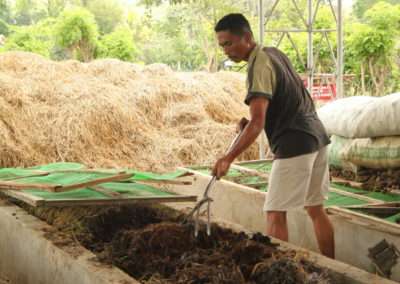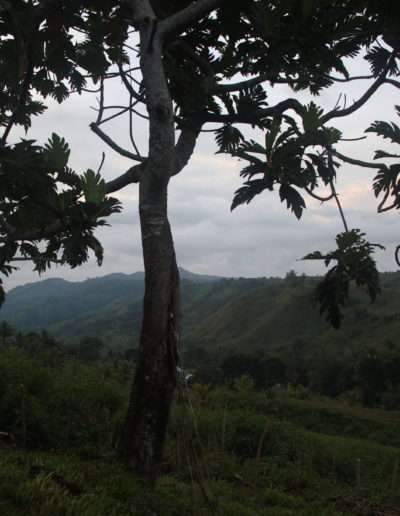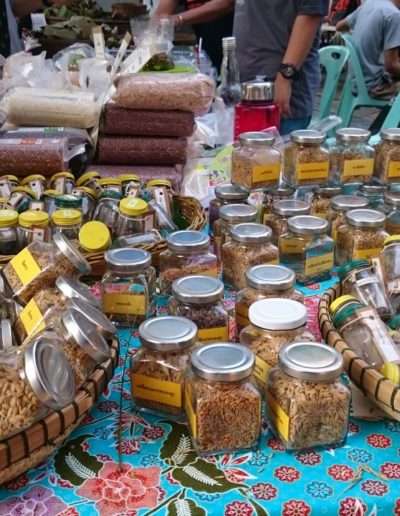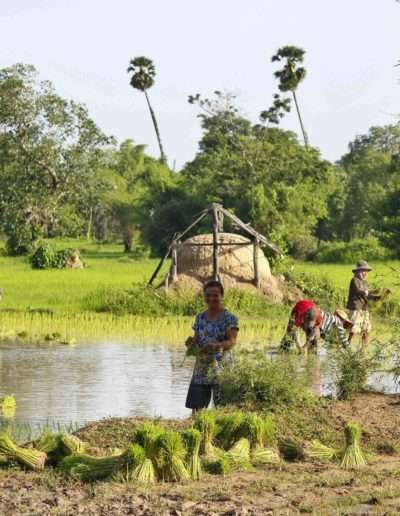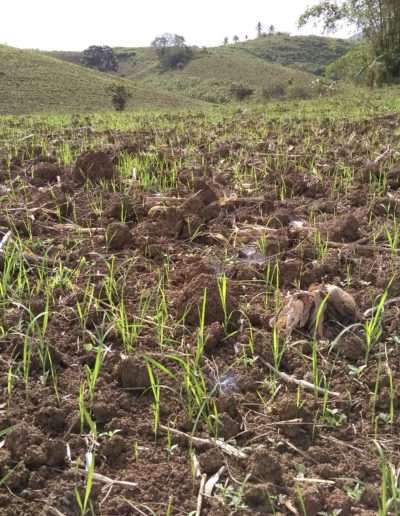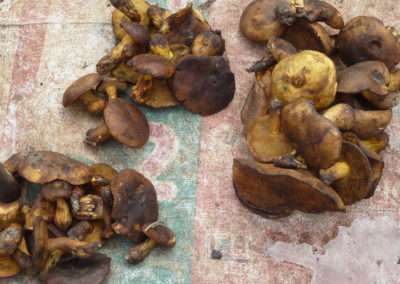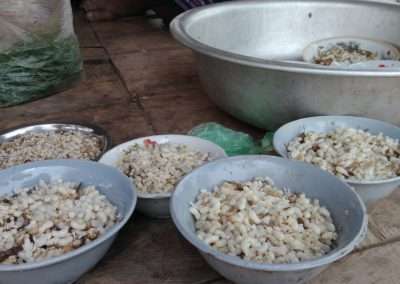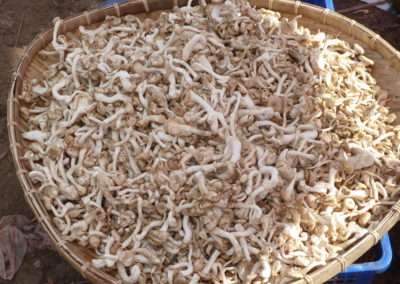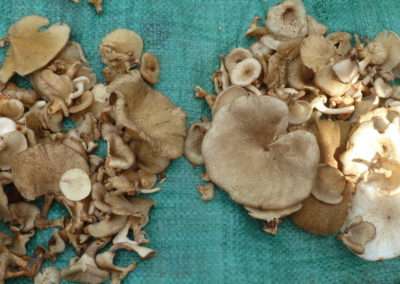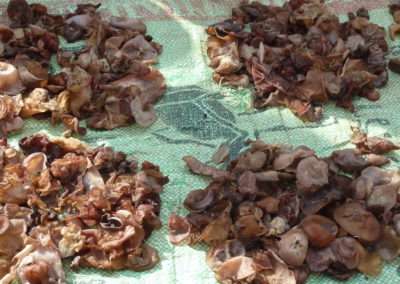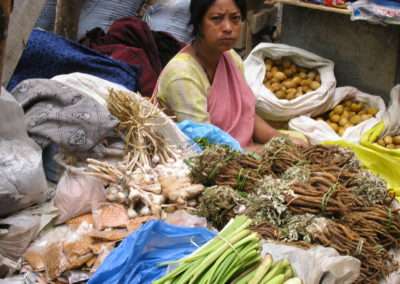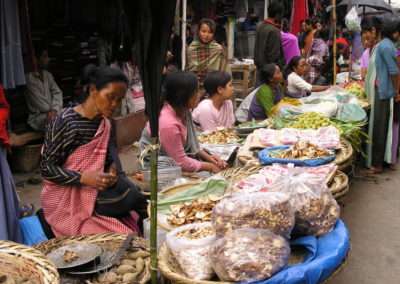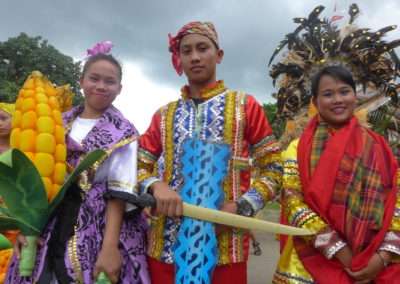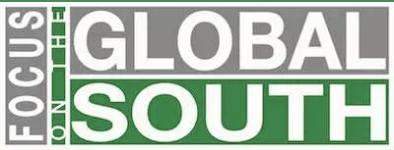
Solidarity with Those Who Feed the World
On the occasion of the International Day of Peasants' Struggles, Focus on the Global South presents an online photo exhibition to co-celebrate small-scale food providers’ perspectives on food sovereignty and their practices on food production, agroecology, and environmental protection.About this Exhibit
Asia, home to about 4.5 billion people or almost 60% of the total world population, is the fastest-growing region in the world in economic terms. Accompanying this economic growth are large economic disparities, persisting inequalities, destruction and erosion of the commons, intensifying political turmoil, rising authoritarianism, and increasing social and environmental injustice, including widespread hunger and malnutrition.
According to the 2018 data of the Global Hunger Index (GHI)[i], countries in the regions of South Asia and Southeast Asia are experiencing serious hunger situations. Out of the 119 countries included in the GHI report (higher rank means hungrier), Myanmar ranked 68th; the Philippines 69th; Nepal 72nd; Indonesia 73rd; Cambodia 78th; Bangladesh 86th; Lao PDR 83rd; India 103rd; Pakistan 106th; and Timor-Leste 110th. The Food and Agriculture Organization (FAO) of the United Nations (UN) reported in September 2018 that the number of hungry people in the world is growing—reaching 821 million, or one in every nine people in 2017.[ii]
Click to Read More
Across the world, the dominant economic system prioritizes the exploitation of natural resources for profit over sustainable management of such resources to feed the growing population of the world. According to the 2017 report of the ETC Group, Who Will Feed Us? [iii], more than two-thirds of the world population rely on the Peasant Food Web—small-scale farmers, peasants, pastoralists, rural women, small-scale fishers, and indigenous peoples—who produce food using less than one-fourth of global resources including land, water, forest, and fossil fuels, to feed the world. These food providers, many of who are women, are those involved in peasant and family farmer-driven agriculture, artisanal fishing, pastoralist-led grazing, and traditional agroecological practices. Their central roles in ensuring food security, maintaining employment, reducing poverty, and sustainable management of natural resources have been highlighted by the Committee for World Food Security since 2011.[iv]
These small-scale food providers are threatened by the industrial food chain led by global agribusinesses and food corporations, who provide food to less than one-third of the world’s people while using at least three-fourths of the world’s agricultural resources, emitting significant amounts of greenhouse gas emissions, and being a main contributor to climate change.
The 2007 Declaration of Nyéléni defines food sovereignty as “the right of peoples to healthy and culturally appropriate food produced through ecologically sound and sustainable methods, and their right to define their own food and agriculture systems.”[v] It argues, among others, that people should have the right to define their own food, farming, pastoral, fisheries, and indigenous systems, and determine the most appropriate methods and practices of food production, distribution, and consumption based on environmental, social, and economic sustainability. Food sovereignty resists the whims and demands of free markets, corporate dominated trade, and the industrial food regime, and instead, prioritizes the development and growth of local and national economies and industries. Above everything, the concept of food sovereignty advocates for the rights of peoples, communities, and the environment above economic and financial considerations.
The right to food is enshrined in Article 25 of the Universal Declaration of Human Rights that first recognized the right to food as a human right: “Everyone has the right to a standard of living adequate for the health and well-being of himself and of his family, including food, clothing, housing and medical care and necessary social services.”[vi] The right to food is intertwined with the inalienable right to life and the realization of life with dignity, as it is imperative to the realization of other human rights. It is not about charity, but about ensuring that all people have the capacity to feed themselves in dignity.[vii] Moreover, the right to food is not merely the people’s right to consume food, but also their right to have assured access to food and the right to produce their own food. The 2018 Independent Civil Society Report on the Use and Implementation of the Right to Food Guidelines argues for a holistic approach to realizing the right to food—recognizing that all human rights are universal, indivisible, interdependent and interrelated, and that the realization of the right to food cannot be achieved in isolation, nor can other human rights be enjoyed when violations of the right to food persist.[viii]
Even so, many small-scale food providers continually suffer violence, exploitation, marginalization, discrimination, manipulation, and displacement because of middlemen/brokers, local elites, agribusiness companies, transnational corporations (TNCs), financial institutions and governments. People are often pushed off and out of their lands, ancestral domains and fishing areas by large-scale investment projects including but not limited to mining operations, plantations, industrial food estates, contract farming, aquaculture, Special Economic Zones (SEZs), and Industrial Zones (IZs). Most of these businesses operate with impunity, in connivance with governments that have adopted neoliberal policies and entered into free trade-investment agreements that destroy the local agricultural sector. Local food providers lose control over their territories, farmlands, grazing fields, water, seeds, livestock, fish populations, and access to markets. New technologies introduced by mainstream academia and research institutions enable powerful corporate players to concentrate control over food, agriculture and fisheries and undermine the abilities of small-scale food providers to develop, share and implement knowledge and skills needed for localized food systems.
The Thai agro-industrial and food conglomerate Charoen Pokphand (CP) Foods is a virtual food monopoly with more than 280 subsidiaries operating in more than 16 countries. In 2014, the Guardian’s six-month investigation revealed the slave labor practices and human trafficking behind the complex supply chains that supply fishmeal to CP’s farmed prawns.[ix] An estimated 300,000 people work in Thailand’s fishing industry, 90% of whom are migrants from neighboring Myanmar and Cambodia, with unscrupulous business outfits preying on them, duping, trafficking, and selling them at sea.
In the Philippines, the Comprehensive Agrarian Reform Program remains unfinished and incomplete after 30 years of weak implementation, and competing interests between landless peasants, and landlords and proponents of converting agricultural lands into real estate development projects and commercial sites. Agriculture in the Philippines now faces land re-concentration through huge agribusiness ventures with very close and strong ties to powerful politicians, land-banking by corporations that render vast land tracts idle and taken away from food production, and very low farm gate prices for farmers—in large part caused by the imposition of tariff policies that favor importation of rice and other crops through the lifting of quantitative restrictions.
In India, the diversity of local seed varieties and traditional knowledge, systems, and practices of food production including agroecology, are threatened by genetically modified foods and the introduction of new technologies in the guise of “climate-smart agriculture.” Expanding corporate investment in food retail, through online and brick-and-mortar markets threatens local food cultures, food production and distribution systems, and people’s access to food.[x]
In Cambodia, the fisherfolk of Tonle Sap Lake are experiencing significantly decreased fish catches that are no longer enough for daily survival, as they contend with the effects of climate change through droughts and floods, the impacts of dams to generate electricity for cities and industries elsewhere, and continued illegal fishing by commercial fishers. Rural families are forced to take on onerous loans to address the growing costs of agricultural production and dwindling crop prices, pushing many to leave their rice fields and migrate to cities and neighboring countries to look for work.
Tragically, those who produce food to feed much of the world are oftentimes those who also suffer from severe and chronic hunger. Most of the rural provinces that are considered the breadbaskets, the rice granaries, and the major food providers of the world are also those that have high poverty incidence. For example, in the Philippines, Bukidnon province is known as a “highland paradise” and Northern Mindanao’s “food basket.” It is among the country’s top producers of sugar, rice, corn, banana, coffee, pineapple, and other fruits and vegetables. And yet 93% of families do not own land, more than 116,000 of them belong to poor households—the highest among the country’s 16 poorest provinces.[xi]
Although women produce most of the food across Asia and despite their central roles in food production and provision, they continue to face discrimination in their homes, communities and in social-economic policies.[xii] Rural women are oftentimes overburdened with both agricultural and domestic work as they are forced to fulfill their “traditional roles” in families, even as their key contributions are neither recognized, nor compensated. Women also face several constraints in accessing markets arising from time constraints, unequal access to productive resources, technology, finance, education and relevant services, and limited influence over decision making on economic matters.[xiii]
[i] K. von Grebmer, J. Bernstein, L. Hammond, F. Patterson, A. Sonntag, L. Klaus, J. Fahlbusch, O. Towey, C. Foley, S. Gitter, K. Ekstrom, and H. Fritschel. (2018 October). 2018 Global Hunger Index: Forced Migration and Hunger. Bonn and Dublin: Welthungerhilfe and Concern Worldwide. Retrieved from https://www.concernusa.org/wp-content/uploads/2018/10/GHI-2018.pdf
[ii] FAO, IFAD, UNICEF, WFP and WHO. (2018 September 11). The State of Food Security and Nutrition in the World 2018. Building Climate Resilience for Food security and Nutrition. Rome: FAO. Retrieved from http://www.fao.org/3/I9553EN/i9553en.pdf
[iii] ETC Group. (2017 October 16). Who Will Feed Us? The International Food Chain vs the Peasant Food Web. 3rd Edition. Québec, Canada: ETC Group. Retrieved from http://www.etcgroup.org/sites/www.etcgroup.org/files/files/etc-whowillfeedus-english-webshare.pdf_.pdf
[iv] Committee on World Food Security. (2013). Investing in Smallholder Agriculture for Food Security and Nutrition. Retrieved from http://www.fao.org/3/a-av034e.pdf
[v] Declaration of the Forum for Food Sovereignty. (2007 February 27). Declaration of Nyéléni. Sélingué, Mali. Retrieved from: https://nyeleni.org/IMG/pdf/DeclNyeleni-en.pdf
[vi] United Nations. (1948). Universal Declaration of Human Rights. Retrieved from https://www.un.org/en/universal-declaration-human-rights/
[vii] Guttal, S. (2018 October 16). The Global/Regional Policy Arena on Food. Bangkok, Thailand. PowerPoint Presentation at the National Conference on Food Sovereignty, Quezon City, Philippines.
[viii] Working Group on Monitoring of the Civil Society Mechanism (CSM) for relations with the Committee on World Food Security (CFS). (2018 October 5). Independent Civil Society Report on the Use and Implementation of the Right to Food Guidelines. Rome, Italy. Retrieved from http://www.csm4cfs.org/wp-content/uploads/2018/10/EN-CSM-LR-2018-compressed.pdf
[ix] Hodal, K., Kelly, C., & Lawrence, F. (2014 June 10). Revealed: Asian Slave Labour Producing Prawns for Supermarkets in US, UK. Article published in The Guardian: Modern-day Slavery in Focus. Retrieved from https://www.theguardian.com/global-development/2014/jun/10/supermarket-prawns-thailand-produced-slave-labour
[x] Guttal, S. (2018 October 5). The Changing Face of Food Retail in India. Article published in the Right to Food & Nutrition Watch: When Food Becomes Immaterial: Confronting the Digital Age. Germany: Brot für die Welt & FIAN International. Retrieved from https://www.righttofoodandnutrition.org/files/rtfn-watch-2018_eng.pdf
[xi] Rodriguez, F. (2015 November 28). Bukidnon: Many Farmers Hungry, Mired in Debt. Article published in Rappler. Retrieved from https://www.rappler.com/move-ph/issues/hunger/113976-bukidnon-farmers-hunger-debt
[xii] Focus on the Global South. (2018 March 8). The Hands That Feed Us. Online exhibition. Bangkok, Thailand. Retrieved from https://focusweb.org/page/women-food-production-asia/
[xiii] Committee on World Food Security. (2015). Connecting Smallholders to Markets. Retrieved from http://www.fao.org/3/a-bq853e.pdf
[xiv] La Via Campesina. (2018 December 17). Finally, UN General Assembly Adopts Peasant Rights Declaration! Now Focus is on its Implementation. Harare, Zimbabwe: LVC International Secretariat. Retrieved from https://viacampesina.org/en/finally-un-general-assembly-adopts-peasant-rights-declaration-now-focus-is-on-its-implementation/
“Sapagkat ang lupa ay buhay, ito ay itinuturing naming sagrado. At sa unti-unti nitong pagkasira ay unti-unti din kaming namamatay.”
– Inged Fintailan
(“For land is life and land is sacred—its gradual destruction is our gradual death.”
—Indigenous Women’s Council of the Téduray and Lambangian Indigenous Peoples)
It is imperative that we work towards the strengthening and advancement of visions, practices, and systems that challenge the dominant economic paradigm that enables corporations and elites to profit at the cost of peoples, communities, and nature. An example of this is Sulagad, the cosmo-vision and system of practices realized by the Téduray and Lambangian of Mindanao. Sulagad embodies their concept of food sovereignty and agroecology, their indigenous system of food production, and their vision of a sustainable way of life.
…is built on the solidarities of peasants/family farmers, artisanal fisherfolk, indigenous peoples, landless peoples, rural workers, migrants, pastoralists, forest communities, women, youth, consumers, environmental and urban movements
(click on images to zoom and see captions)
…fights for a world where all peoples and nations are able to determine their own food producing systems and policies that provide every one of us with good quality, adequate, affordable, healthy, and culturally appropriate food
(click on images to zoom and see captions)
…fights for the recognition and respect of women’s roles and rights in food production, and representation of women in all decision making bodies; and fights for a world where food sovereignty is considered a basic human right, recognised and implemented by
communities, peoples, states and international bodies
(click on images to zoom and see captions)
…ensures that all peoples in each of our countries are able to live with dignity, earn a living wage for their labour, and have the opportunity to remain in their homes food
(click on images to zoom and see captions)
…fights for a world where we are able to conserve and rehabilitate rural environments, fish stocks, landscapes and food traditions based on ecologically sustainable management of land, soils, water, seas, seeds, livestock and other biodiversity
(click on images to zoom and see captions)
…fights for a world where we value, recognize and respect our diversity of traditional knowledge, food, language andculture, and the way we organise and express ourselves
(click on images to zoom and see captions)
…fights for a world where there is genuine and integral agrarian reform that guarantees peasants’ full rights to land; defends and recovers the territories of indigenous peoples; ensures fishing communities’ access and control over their fishing areas and eco-systems; honours access and control over pastoral lands and migratory routes; assures decent jobs with fair remuneration and labour rights for all workers; and a future for young people in the countryside
(click on images to zoom and see captions)
…fights for a world where agrarian reform revitalizes interdependence between producers and consumers; ensures community survival, social and economic justice, ecological sustainability and respect for local autonomy and governance with equal rights for women and men; and guarantees the right to territory and self-determination for our peoples
(click on images to zoom and see captions)
…fights for a world where we share our lands and territories peacefully and fairly among our peoples, be we peasants, indigenous peoples, artisanal fishers, pastoralists, or others
(click on images to zoom and see captions)
…fights for a world where in the case of natural and human-created disasters and conflict-recovery situations, food
sovereignty acts as a kind of “insurance” that strengthens local recovery efforts and mitigates negative impacts; where we remember that affected communities are not helpless, and where strong local organization for self-help is the key to recovery
(click on images to zoom and see captions)
…fights for a world where peoples’ power to make decisions about their material, natural and spiritual heritage are defended; where all peoples have the right to defend their territories from the actions of transnational corporations
(click on images to zoom and see captions)
…fights against imperialism, neo-liberalism, neo-colonialism and patriarchy, and all the systems that impoverish life, resources and eco-systems, and the agents that promote the above such as international financial institutions, the World Trade Organisation, free trade-investment agreements, transnational corporations, and governments that allow the unrelenting oppression of people and domination over nature
(click on images to zoom and see captions)
…fights against the dumping of food at prices below the cost of production in the global economy; and the domination of our food and food producing systems by corporations that place profits before people, health and the environment
(click on images to zoom and see captions)
…fights against technologies and practices that undercut our future food producing capacities, damage the environment and put our health at risk; these include transgenic crops and animals, terminator technology, industrial aquaculture and destructive fishing practices, the so-called white revolution of industrial dairy practices, the so-called ‘old’ and ‘new’ Green Revolutions, and the “Green Deserts” of industrial bio-fuel monocultures and other plantations
(click on images to zoom and see captions)
…fights against the privatisation and commodification of food, public services, knowledge, land, water, seeds, livestock and our natural heritage; and against development projects/models and extractive industry that displace people and destroy our environments and natural heritage
(click on images to zoom and see captions)
…fights against post disaster and conflict reconstruction programmes that destroy our environments and capacities; resists the criminalization of all those who struggle to protect and defend our rights; and opposes wars, conflicts, occupations, economic blockades, famines, forced displacement of people and confiscation of their land, and all forces and governments that cause and support them
(click on images to zoom and see captions)
…fights against food aid that disguises dumping, introduces GMOs into local environments and food systems and creates new colonialism patterns
(click on images to zoom and see captions)
The recent adoption of the UN Declaration on the Rights of Peasants and Other People Working in Rural Areas is a significant and fundamental step forward. As Elizabeth Mpofu, Zimbabwean peasant farmer and La Via Campesina General coordinator asserts, “This declaration is an important tool which should guarantee and realize the rights of the peasants and other working people in rural areas (…) as peasants we need the protection and the respect for our values and our role in society to achieve food sovereignty.”[xiv]
Beyond this international legal instrument, an extremely important undertaking is to strengthen our solidarity with and support for the struggles for food sovereignty by those who produce and provide food and defend their rights to do so. On the International Day of Peasants’ Struggles, Focus on the Global South gives thanks to, and renews our commitment stand with small-scale food providers around the world, who continue to innovate, protect our common home, and feed the world.

